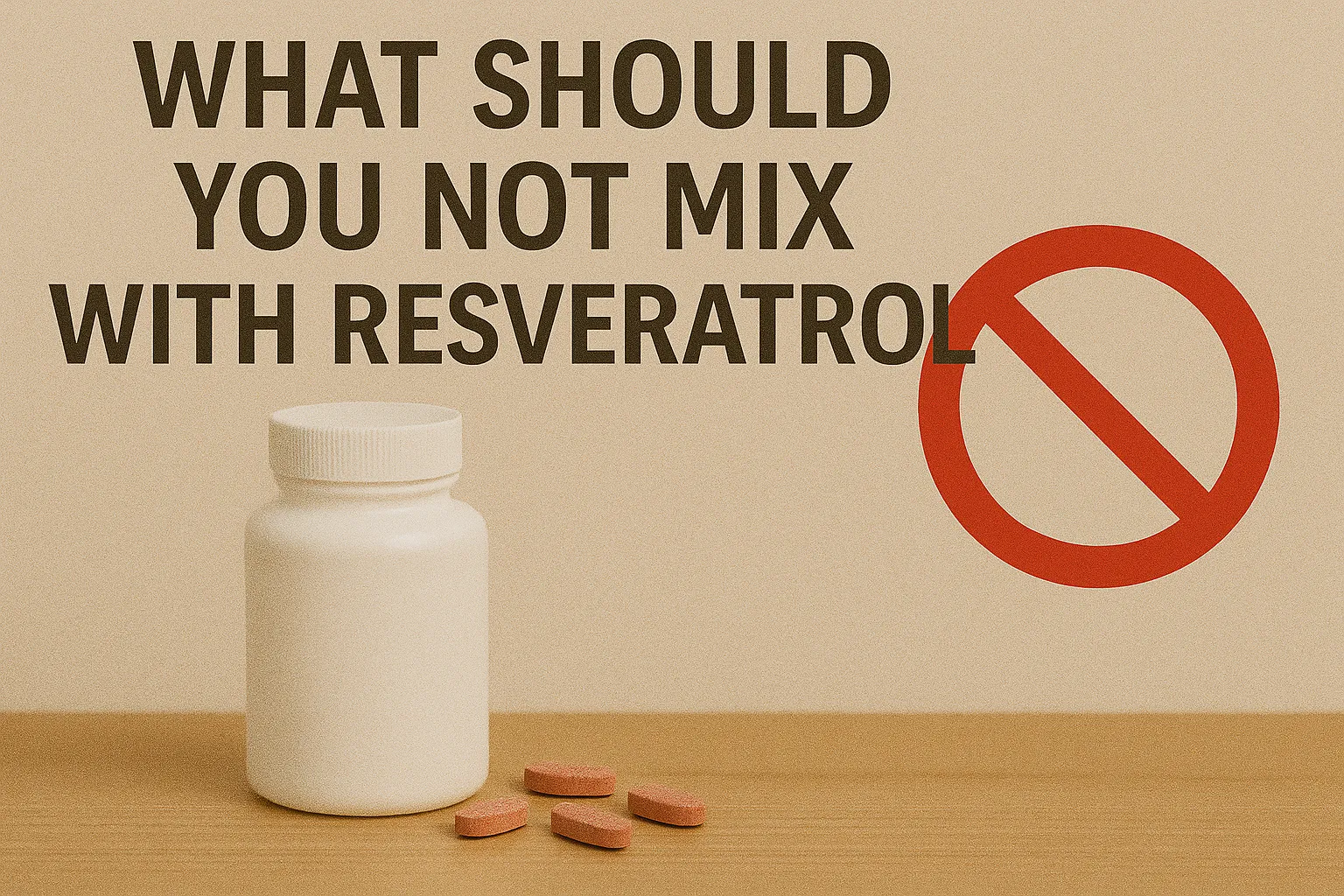What should you not mix with resveratrol?
Resveratrol, a natural antioxidant found in red grapes and wine, offers many health benefits — but not all combinations are safe. When taken with certain drugs or supplements, it may lead to unwanted interactions. Here’s what you should avoid mixing with resveratrol.
1. Blood Thinners
Resveratrol may have blood-thinning effects. Combining it with medications like warfarin, aspirin, or clopidogrel can increase the risk of bleeding.
2. NSAIDs (Non-Steroidal Anti-Inflammatory Drugs)
Mixing resveratrol with ibuprofen or naproxen could enhance the risk of gastrointestinal bleeding due to compounding anti-inflammatory effects.
3. Estrogen-Based Medications
Resveratrol has mild estrogenic activity. When taken with hormone therapy, it might alter hormone balance, especially in women on HRT or birth control pills.
4. Chemotherapy Drugs
Resveratrol may interact with certain chemotherapy treatments. Cancer patients should avoid self-supplementing without consulting their oncologist.
5. CYP450 Substrates
Resveratrol can influence liver enzymes (CYP450), possibly affecting drugs like statins, antidepressants, or immunosuppressants by altering their metabolism.
❓ Frequently Asked Questions
Yes, especially with blood thinners, statins, hormone therapies, and chemotherapy. Always check with your healthcare provider before combining supplements and prescriptions.
Be cautious when combining resveratrol with supplements like fish oil, vitamin K, or curcumin, as overlapping effects may increase risks like bleeding or liver stress.
Both have blood-thinning properties. Combining them can heighten the chance of internal bleeding or bruising.
Moderate wine (which contains resveratrol) is generally safe. However, avoid high-alcohol consumption, especially if on liver-metabolized medications.

